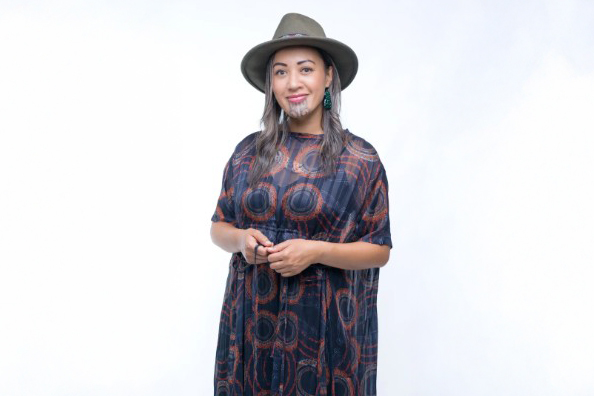Awhitia Mihaere has returned to Te Wānanga o Aotearoa to teach healing knowledge that's been handed down for generations.
She teaches the 18-week Rongoā Appreciation programme in Te Ihu Takiwā. It covers the principles and practices surrounding native plant species and their medicinal properties.
Awhitia first taught rongoā at the Māngere campus in 2006 and last taught the programme in Semester B last year.
The mother of six, with nine mokopuna, inherited her rongoa skills from her Rangitāne ki Tāmaki nui-aa-rua kuia and also learned traditional birthing skills from her Maniapoto ki Otorohanga koro. She “re-awoke” to her calling under the tutelage of renowned tohunga, the late Hohepa Delamare.
“For me rongoā Māori is revolutionary,” she says.
“It is the seen and the unseen. Rongoā defines itself as being direct from Io, ngā Atua Māori through to tīpuna. It is linked to elemental nature spirits - earth, wind, fire and water - that allow the cellular memory to recognise your divine self to that of your human self.”
Awhitia says although this mātauranga is ancient, more recently, the Māori health practice had become almost obsolete because of the legislation.
The Tohunga Supression Act of 1907 banned healers from treating people, the Medicines Act 1981 required rongoā be regulated in the same way as pharmaceutical drugs and the Health and Practitioners Competency Assurance Act 2003 restricted practitioners using romiromi and mirimiri.
She says those decisions were made by people “least impacted by those decisions”.
“Rongoā Māori in the Ministry of Health needs to be challenged so that we can make a positive change.”
Awhitia has worked tirelessly to deliver positive health outcomes for Māori. At the Mangakōtukutuku campus, for example, she helped He Waka Hiringa tauira specialising in tāpu subjects such as tupāpaku to make sure their kaupapa aligned with tīpuna knowledge.
Away from TWoA, Awhitia has worked as a government cultural advisor in education and was also responsible for implementing romiromi and haputanga practices into Women's Correctional Facilities and cleansing ceremonies in other prisons.
Currently she's studying towards a PhD in Therapeutic Restorative Justice, having worked on marae panels for urban Māori authorities, at the same time as advocating for traditional healing methods to be applied along-side mainstream medicine to improve health outcomes for Māori.
“I see the revitalisation of te reo Māori as rongoā Māori. There's a reo of our elements and it's about working with the elements ō ngā Ātua. For me, everything evolves.”




































